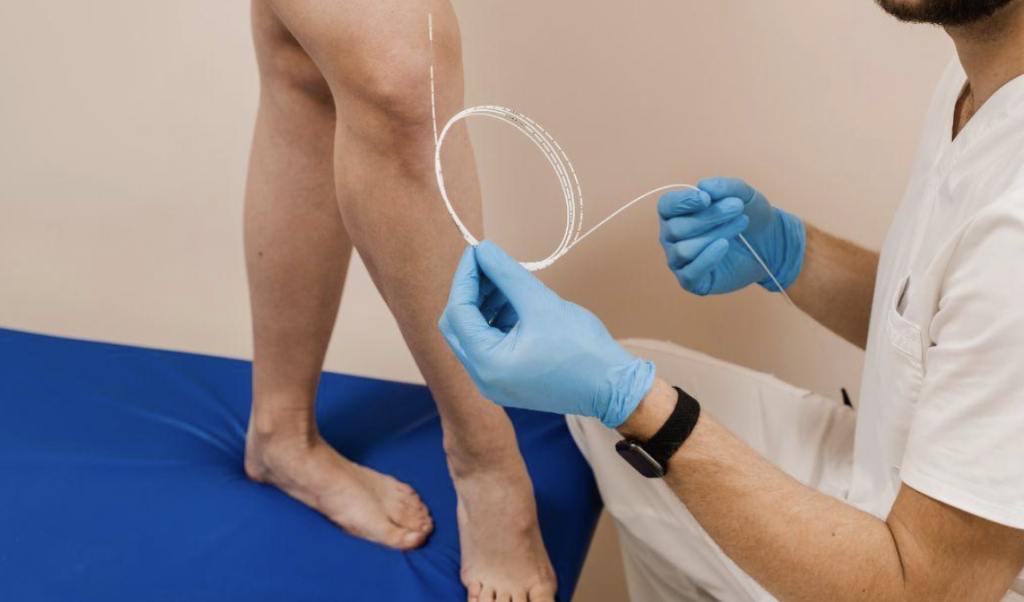Gynecology is a medical specialty focused on the health of the female reproductive system. A key area within this practice involves the management of ovarian cysts, which are fluid-filled sacs that can develop on or within an ovary. Here is more information on the gynecological approach to identifying and monitoring ovarian cysts, various management and treatment strategies, and the gynecologist’s function in long-term care and prevention:
Identifying and Monitoring
A gynecology specialist’s role in managing ovarian cysts begins with detection, often during a routine pelvic examination. If a cyst is suspected, the gynecologist will conduct a more detailed evaluation. This process typically includes a review of the patient’s medical history and a discussion of symptoms, such as pelvic pain or bloating.
To confirm the presence of a cyst and assess its characteristics, a gynecologist will often order a pelvic ultrasound. This noninvasive imaging technique uses sound waves to create a picture of the ovaries and uterus. The ultrasound helps determine the cyst’s size, shape, and composition, whether it is fluid-filled or solid. Based on these findings, the gynecologist may recommend a period of watchful waiting. This involves scheduling follow-up ultrasound examinations to monitor the cyst for any changes in size or appearance over several menstrual cycles, as many functional cysts resolve on their own.
Managing and Treating
The management strategy for an ovarian cyst depends on factors like its size, the patient’s age, and the type of cyst. For many simple, fluid-filled cysts, especially in premenopausal women, observation is a common course of action. The gynecologist will track the cyst to see if it disappears without intervention.
For cysts that are large, persistent, or cause significant symptoms, a gynecologist may discuss other options. Hormonal contraceptives, such as birth control pills, can be prescribed to regulate the menstrual cycle. This can help prevent the formation of new functional cysts. In cases where a cyst requires removal, a gynecologist can perform surgery.
A cystectomy is a procedure to remove only the cyst while preserving the ovary. An oophorectomy involves the removal of the entire ovary. Many of these procedures can be performed using minimally invasive laparoscopic techniques, which involve small incisions and can lead to a quicker recovery.
Caring and Preventing
A gynecologist also plays a part in the long-term management and prevention of certain types of ovarian cysts. Regular gynecological check-ups allow for ongoing monitoring of ovarian health. These appointments provide an opportunity to discuss any new symptoms and to perform pelvic exams that can detect abnormalities early.
For individuals who experience recurrent functional cysts, a gynecologist may recommend continuous management strategies. This can include the long-term use of hormonal contraceptives to suppress ovulation, which reduces the likelihood of new cysts forming. The gynecologist provides education on the nature of ovarian cysts and helps the patient understand what to expect. This ongoing relationship supports consistent care and the proactive management of ovarian health over time.
Learn More About Gynecology
Gynecologists have a comprehensive role in the management of ovarian cysts. Their work starts with identification through pelvic exams and diagnostic tools like ultrasound. They then formulate a management plan, which may range from observation to hormonal treatments or surgical intervention. Through regular follow-up and long-term care strategies, gynecologists help monitor ovarian health and work to prevent the recurrence of certain types of cysts.
- HMS Photovoltaik: A Complete, In-Depth Guide to Modern Solar Power Solutions
- Decreto Supremo 160: A Complete and Updated Guide
- Dentiloquent: A Complete Professional Guide
- Närkes Elektriska: Your Trusted Partner in Electrical Services in Örebro, Sweden
- Litorotica Tags: Guide for Better Search, Safety, and Clarity





